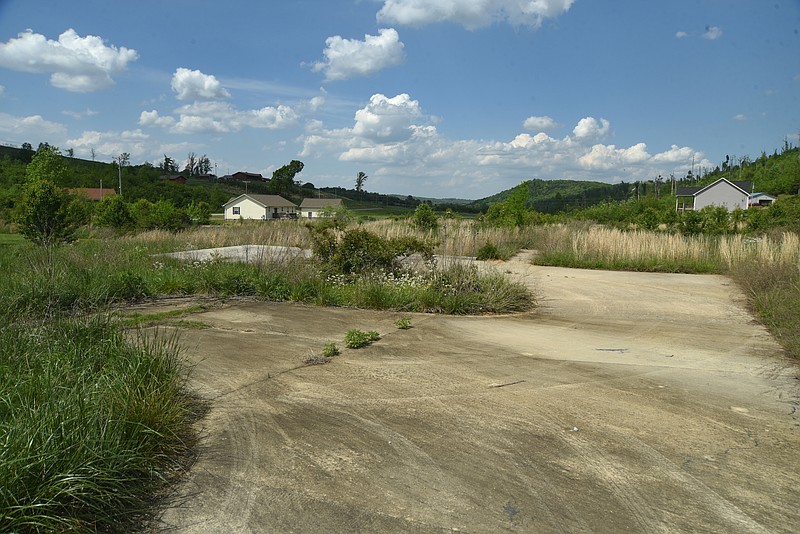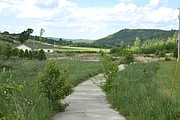I still go through times of doubt, but I never doubt that God is good. You still are hurt. But the hurt starts to heal and you realize there is a purpose for everything.
It's been five years since Connie Wilson lost her sister, her sister's husband and their son and daughter, and she still sometimes wishes there was someone to blame for their deaths.
If they had been killed in a car wreck, she could blame the other driver.
If they had been shot, she could blame the person who pulled the trigger.
But since they were killed in a tornado that ripped across Ringgold, Ga., on April 27, 2011, during the deadliest tornado outbreak in modern history, Wilson has wrestled with accepting that God caused it to happen.
"If we truly believe God created the weather and he controls it all, well, you have to believe God did it," she said.
Wilson's sister, Pam Black; her husband, Chris; and their children, 21-year-old Cody and 16-year-old Chelsea, were in the direct path of the EF4 twister that killed eight people in the North Georgia town before crossing the state line and killing eight more people in Apison. On the same day, hundreds of tornadoes tore through the Southeast, killing a total of 316 people.
After Wilson, a God-fearing woman from Rossville, buried her family, she began to hear other stories of survival at her church. She was happy for those people, but it left her wondering: "Was my family member not good enough to save?"
In the heart of the South, in one of the most Bible-minded areas in America, many looked out from the devastation across the Tennessee Valley and asked: "Why us?"
When devastation hits a community that is not used to natural disasters, these kinds of questions often haunt residents, said Douglas Geivett, a religion professor at Biola University in California.
"When you live places that seem to be protected geographically, then people will wonder whether the supernatural was involved," he said.
And after major disasters, pastors and communities often try to decide whether God sent the disaster to rain down judgment or to get people's attention, Geivett said. They often look to the Old Testament to point to times when God used the laws of nature for his purposes, but people sometimes jump to conclusions, forgetting those were specific incidents in history, he said.
"A father can see his child fall down and get injured, but the father didn't cause him to fall," he said. "But now the father is there to provide comfort and offer lessons to be learned."
A 2011 poll by the Public Religion Research Institute found most Americans reject the idea that natural disasters are a direct punishment from God - except for evangelicals.
The poll found nearly six in 10 evangelicals said they believe God can use natural disasters to send messages, while the majority of racial and ethnic minority Christians believe natural disasters are God's way of testing their faith.
In Ringgold, the answer you get depends on who you ask.
The town of 3,647 was decimated as more than a third of its residential households were damaged or destroyed, along with 30 businesses, including restaurants, hotels, the middle school and a local church.
The first Sunday after the destruction, Christ Fellowship Presbyterian Church pastor Ed Craft decided instead of preaching a sermon on why God allowed the storm, he would ask his congregation.
"Why weren't we protected by God's hand?" he asked from the pulpit. "Was this some sort of judgment on God's people? How can it be an act of mercy if people lost their lives?"
This started a conversation in which, Craft said, congregants started to realize their area wasn't immune to tragedy even though they believed the mountains around the area would protect them from tornadoes. They didn't see the tornadoes as judgment, though. They began to see how God had spared many lives - dozens of people were eating in the restaurants along Alabama Highway that were destroyed and no one was killed, he said.
Others came to Craft later and told stories of narrow escapes and how they had recommitted their lives to God or started going back to church.
Then, as the town began to clean up and rebuild, church members came from hundreds of miles away to volunteer with the efforts led by Ringgold United Methodist Church. Congregations from different denominations volunteered hundreds of hours, working together to remove construction debris and trees and give out food and clothes.
In fact, the churches worked so well together that two years after the recovery, several churches, led once again by the United Methodist Church, partnered to begin a ministry to help struggling alcoholics and drug addicts recover, said Charlotte Dawson, a volunteer from Mt. Peria Baptist Church, a church destroyed in the tornado.
"Most churches from different denominations don't work well together," she said. "[The new ministry] was one of the blessings that came out of the tornadoes."
The effort, Recovery at Ringgold, has worked with hundreds of people who are desperate to restore their lives, she said.
And five years after the tornadoes, houses are back. Mt. Peria Baptist Church is back. Ringgold Middle School is back. Many of the restaurants are back. The green foliage has grown back.
But there are still scars.
Along Cherokee Valley Road, trees along the ridge are still jagged. And an overgrown driveway that remains on Friendship Road leads to a concrete slab where the Blacks' house once stood.
Wilson will never forget when one of her brothers called the morning after the tornado. "Their house is gone and I can't find them," he said.
She drove from Rossville and they searched hospitals, then morgues, identifying Pam and the children in body bags.
"You just don't want to think about it again," Wilson said. "You just don't want to have to think about the things you had to walk through and see."
While she still wrestles with the why, she has come to accept that it was their time and, in some ways, she's grateful they were all taken together, so they didn't have to suffer without each other.
"I still go through times of doubt, but I never doubt that God is good," she said. "You still are hurt. But the hurt starts to heal and you realize there is a purpose for everything."
In our minds, we think God should save everybody, Wilson said. But He is God, she said, and there's nothing you can do about it but trust Him and go on.
Contact staff writer Joy Lukachick Smith at jsmith@timesfreepress.com or 423-757-6659.

